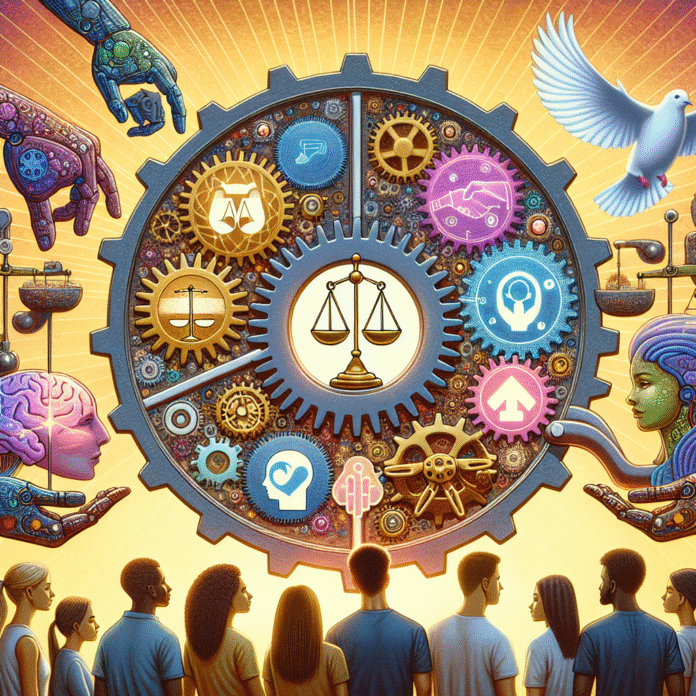As artificial intelligence (AI) continues to evolve and permeate various aspects of our lives, it brings with it a wave of ethical challenges that society must confront. The rapid advancement of AI technologies poses significant questions about responsibility, privacy, bias, and the future of work, making it imperative to address the ethical implications of these innovations.
The Promise and Perils of AI
AI has the potential to revolutionize industries, enhance productivity, and improve the quality of life. From healthcare diagnostics to autonomous vehicles, the benefits are apparent. However, with these advancements come concerns that warrant thorough examination.
Bias and Discrimination
One of the most pressing ethical issues is the presence of bias in AI algorithms. These systems are trained on historical data, which often reflects societal inequalities. Consequently, AI may inadvertently perpetuate these biases, leading to discriminatory outcomes in areas such as hiring, law enforcement, and lending. For example, facial recognition software has been criticized for its higher error rates among people of color, raising alarms over how such technologies can reinforce existing societal disparities.
Privacy and Surveillance
The expansive data collection required for AI to function effectively poses significant privacy concerns. Individuals often unknowingly contribute their personal information, and AI systems can analyze this data in ways that infringe on personal privacy. The use of AI in surveillance technologies raises alarm bells about the potential for pervasive monitoring and the erosion of civil liberties. Striking a balance between security and privacy remains a crucial ethical consideration.
Autonomy and Decision-Making
As AI systems take on more decision-making roles—whether in healthcare, legal matters, or financial services—the question of accountability arises. If an AI makes a harmful decision, who is responsible? The developer, the user, or the AI itself? This dilemma complicates the concept of agency and challenges traditional ethical frameworks. Society must establish clear guidelines for accountability and the ethical use of AI technologies.
The Future of Work
The rise of AI poses a significant threat to employment as automation increasingly replaces tasks traditionally performed by humans. While AI can enhance efficiency, it also raises questions about job displacement and economic inequality. Addressing these issues requires a proactive approach to workforce retraining and the development of policies that safeguard workers’ rights. The ethical implications of job displacement must be addressed to ensure a more equitable transition in the labor market.
Ethical Frameworks for AI
To navigate the complex landscape of AI ethics, several frameworks have been proposed:
Transparency and Explainability
AI systems should be transparent, allowing users to understand how decisions are made. Explainability is crucial for building trust and ensuring accountability, especially in critical applications like healthcare and criminal justice.
Fairness and Inclusivity
Ethical AI must prioritize fairness. Developers should implement measures to identify and mitigate biases in algorithms, ensuring that AI systems serve all segments of society equitably.
Privacy Protection
Robust data protection measures must be implemented to safeguard individuals’ privacy. This includes clear data usage policies and the option for individuals to control their information.
Collaboration and Regulation
Policymakers, technologists, and ethicists must work together to create comprehensive regulations governing the development and use of AI. Collaborative efforts can lead to a more nuanced understanding of ethical implications and inspire responsible innovation.
Conclusion
The rise of AI in modern society presents exciting opportunities and daunting ethical challenges. Addressing these concerns is not merely an academic exercise; it is essential for fostering a society that values fairness, privacy, and accountability. As we navigate this uncharted territory, the ongoing dialogue about the ethics of AI will shape the future of technology and its impact on humanity. By establishing ethical frameworks and fostering collaboration, we can leverage the transformative power of AI while safeguarding foundational societal values.






